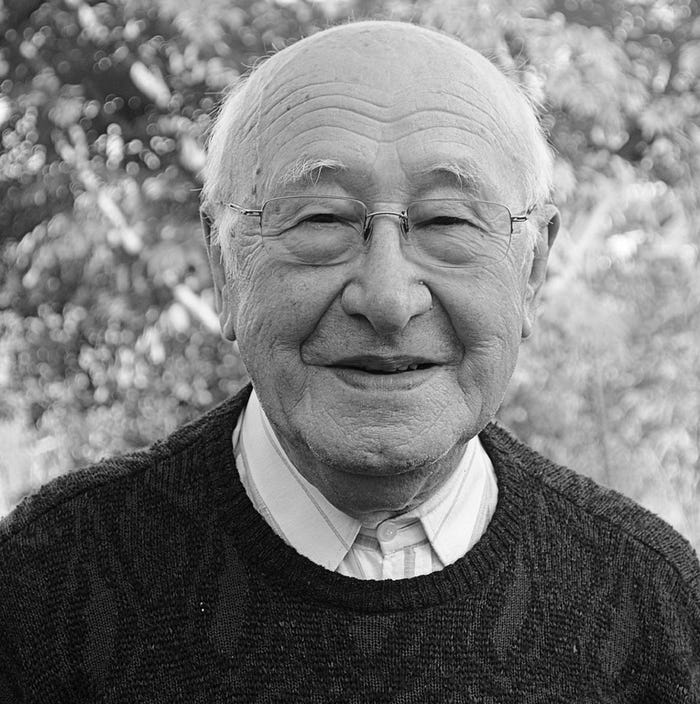Mr. Kojima was far more than he appeared

I have been teaching English at a special care Seniors’ Home for 27 years. Along the way, I have come to know many wonderful people.
One such person was Mr. Kojima, who I first met about 10 years ago when one of the staff led him into my classroom and helped him sit down. I heard he had worked in the law department of a large university.
You can’t judge a book by its cover
Mr. Kojima’s expression was blank and a little bewildered.
I approached him and said, “Hello.”
His face brightened, and he replied with a clear, “Hello! How are you?”
How unusual!
Most people I have met at the Seniors’ Home cannot speak English, and the few that do, speak English with katakana/Japanese pronunciation that is barely understandable. For them, “How are you?” becomes, “Hah-low, hau aah yu?”
Not so with Mr. Kojima.
I answered him, “I’m fine, thank you! How are you?”
Eyes twinkling, he replied, “I’m fine, thank you! It’s a fine day, isn’t it?”
I have gotten to know this delightful man over the years. His habitual blank face transforms when I call him by name, get his attention, and direct a question to him in English. He looks up, momentarily lucid, and answers politely — usually correctly — before his head drops and his expression returns to blankness.
He attends my weekly English club at the Seniors’ Home, and our time together largely consists of simple games played in English.
One is a card matching memory game. When Mr. Kojima’s turn comes, he often looks around confused. A helper or I tell him to pick up two cards from the table, and he inevitably picks the two closest to him.
He looks at the cards and says their names in perfect English. He is the only one that does that. I think he is the only one that can do that. When he randomly gets a match, he doesn’t understand the significance. He smiles, looks baffled, and puts the cards down.
Another one is the letter-guessing game called hangman, which I change to a cheerier version with a little girl flying a kite. This always stumps Mr. Kojima who can’t seem to understand that he needs to say a letter when it’s his turn. Yet, his face lights up when he looks at the incomplete word on the chalkboard and guesses the correct answer, impressing everyone present with his English vocabulary.
At these times, I do an internal dance of joy.
After class, Mr. Kojima shakes my hand, smiles, and says, “Thank you! See you next week!” then hobbles back to his seat, unstable, helper by his side to assist him. There he sits, head down slightly, face blank. Back to default. His intellect hidden behind a wall of dementia.
He’s 62 years old.
Because of the pandemic and the flu season that preceded it, I have not seen dear Mr. Kojima for nearly three years. I hope he is well.
Click this link to read about Japan’s wonderful tradition of honoring their elderly.
If you have questions about Japan or suggestions for articles, please add them in the comments. For more photos and information on Japan, follow me on instagram at: https://www.instagram.com/more_than_tokyo/




